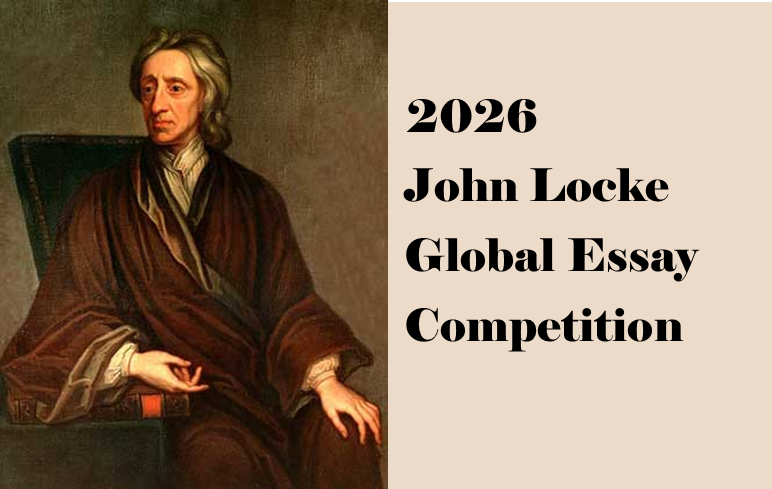
An Interview with Head Advisor Vicky H: On Leading Students with Care, Creativity, and a Drive toward Excellence
By
AtomicMind Staff
May 30, 2025
•
3
min read
Share this Article
Simply highlight text to share on social or email
Vicky holds a PhD in History from Princeton University and earned her BA in English at UCLA. She brings over two decades of experience in education, and as Head Advisor at AtomicMind, she guides students with insight, care, and academic rigor. Vicky is passionate about empowering young minds to discover their passions and achieve their full potential.
Where did you go to school and how long have you been working in education?
I’m a lifelong learner: I earned a Bachelor’s in English at UCLA, a Master’s in History at King’s College London, a Master’s in Classics at UCI, a PhD in History at Princeton, and I recently completed a Fulbright Post-doctoral Fellowship at the University of Haifa, in Israel. For those of you keeping score at home, that’s 15 years of study at universities around the world!
I’ve been tutoring essay writing for college admissions, advising college strategy, and teaching test-prep since I was in undergrad at UCLA, and I’ve been honing my skills and adding to my success stories ever since. After about 18 years doing this, I’ve actually lost count of how many students I’ve helped gain admission to competitive universities, like Princeton, the University of Chicago, Yale, Columbia, Duke, and UC Berkeley, to name a few.
What’s your overall philosophy when it comes to guiding students through the college admissions process?
Having conducted interviews for admissions to one of the top universities in the world, and after having extensive conversations with colleagues who serve on admissions boards for elite universities, I have come to the conclusion that the rarest quality to find in an applicant–which is also what universities look for the most–is passion. Universities want to know that their students are motivated by the prospect of learning and creating, not just the prospect of earning a 4.0 GPA and a 1600 SAT.
So my approach to guiding students through this increasingly-difficult process is to communicate to them (and their parents) that my greatest value is that I help develop their confidence, intellectual curiosity, and their sense of purpose. My years of success with my students stems from my philosophy that an excellent college application is one that reveals a student’s true voice and expresses their unique story.
So what do universities look for in an applicant?
How I see it is that universities have limited slots to fill, so they want to ensure they’re making a wise decision with each and every applicant. What are their criteria? They want to know three main things: (1) Does the student have the mental aptitude to excel at their institution? They determine this from a student’s grades and test scores because statistics have shown that students who score higher on AP tests and the SAT/ACT will perform better at the college level. It’s as simple as that. (2) Does the student have a dedicated record of commitment to several activities? A student who has played for the soccer team for 3 years and has been practicing the Baroque violin for 10, on top of being consistently involved in Model UN, for example, demonstrates to the university that this applicant is not a quitter. They’re unlikely to struggle in class and drop out, or transfer. Not only that, this commitment shows the university that this student will likely continue on the same path at their school, and they’ll contribute to the campus culture by joining the campus acapella group or running reading groups or organizing trips to a local museum exhibit. (3) Does the student have leadership qualities or an entrepreneurial spirit? All universities want their alumni to be success stories. This helps the prestige of the school and reinforces the alumni network. So if an applicant founded their own NGO that delivers medical supplies to rural communities in the US, for example, you can only imagine what this student will accomplish with a university education.
How have you seen university admissions change over the years?
University admissions is an increasingly difficult and daunting process for young students; in a practical sense, this means that a student at the young age of 17 is expected to have a flawless transcript, near-perfect test scores,, multiple independent projects, full summer schedules, (ideally) a publication, a mature writing style that effectively and succinctly communicates their unique and mature personality, and a partridge in a pear tree. In short, today’s high school students applying to the Ivy League face expectations and demands that, just a decade ago, were typical only for college graduates seeking the most competitive jobs on the market.
Unfortunately, this is a harsh reality that high school students face now. It can really weigh on a student’s mental health, as they push themselves to achieve more and more each year of their high school career. Honestly, when I first started advising for college strategy years ago, things weren’t this complicated. In 2007, I would mostly suggest courses to take, clubs to be involved in, award opportunities to apply for, and of course, I would edit college application essays. But now, 18 years later, I sometimes feel like I’m teaching a Business course to my students. For example, I’ve walked students through how to turn their capstone project into an LLC registered in Delaware. This is a completely different ballgame, and I couldn’t imagine going through this process at 13 all alone. Now more than ever, students need to have someone in their corner, supporting them and giving them advice to navigate this complicated and heavy stage of their lives.
What is the most rewarding part of what you do as a head advisor at AtomicMind?
One of the most rewarding parts of my work is watching students discover their passion and develop the confidence and skills necessary to grow as socially responsible individuals who want to create positive change in the world. This is honestly the silver lining to this CEO-ification of college admissions applications: motivated students put their whole being into innovating and materializing their dreams. This makes me pretty emotional to watch, because you see a student start brainstorming a project for the purpose of building their resume, but once it comes to fruition, you see that it’s taken on an altruistic purpose. And that makes everything worth it. If this next generation of college graduates is raised on the idea of building and creating to make the world a better place, then I’ll be very happy to share that world with them.
What do you look for when helping students brainstorm and refine their college essays?
Brainstorming sessions are one of my favorite parts of what I do. It’s a fun time to explore a student's experiences and perspectives, but mostly it’s a chance to see what happens when the dog finally catches the car, so to speak. For three years, students are working themselves to the bone to achieve the perfect combination of test scores, GPA, and extracurriculars, all for this distant goal of getting into Harvard. So when we start brainstorming the essay, I always ask them: let’s assume you get into Harvard. Why did you want to go there, specifically, and what do you think a Harvard education will do for your future? Most of the time, students will stall and answer that Harvard is prestigious, or Harvard has produced, arguably, some of the most important people in our modern world. But it’s rare to see a student really understand what a university education will actually provide them. Sometimes I see that they’ve been chasing the spotlight for a long time, but they haven’t stopped to consider what they’ll say once they’re finally on stage.
What do you consider your biggest success as a head advisor?
I could answer: when my students are admitted to their top choice. And that’s a valid answer, but I honestly believe that my biggest success is measured by my students who actually develop a love for learning. As I said at the beginning of this interview, I’m a lifelong learner. I’m a firm believer in the power of higher education to fundamentally change who we are, how we understand the world, and to drive us to get more out of it.
This is the essence of my approach to education and mentoring–being admitted to a rigorous university is amazing, but even admitted students soon realize that only if they have a passion for learning, can they actually be successful in the face of complex lectures, competitive classmates, hundreds of pages of weekly readings, difficult exams, and “imposter syndrome.” To put it simply, I don’t just hand my students a key to the university gates—I help them build the compass they’ll need to navigate the entire journey ahead. So whether they go to Columbia or community college, what matters to me most is that my students begin their journey in higher education with an open mind and a passion to learn about things that are foreign to them.
Share this Article



